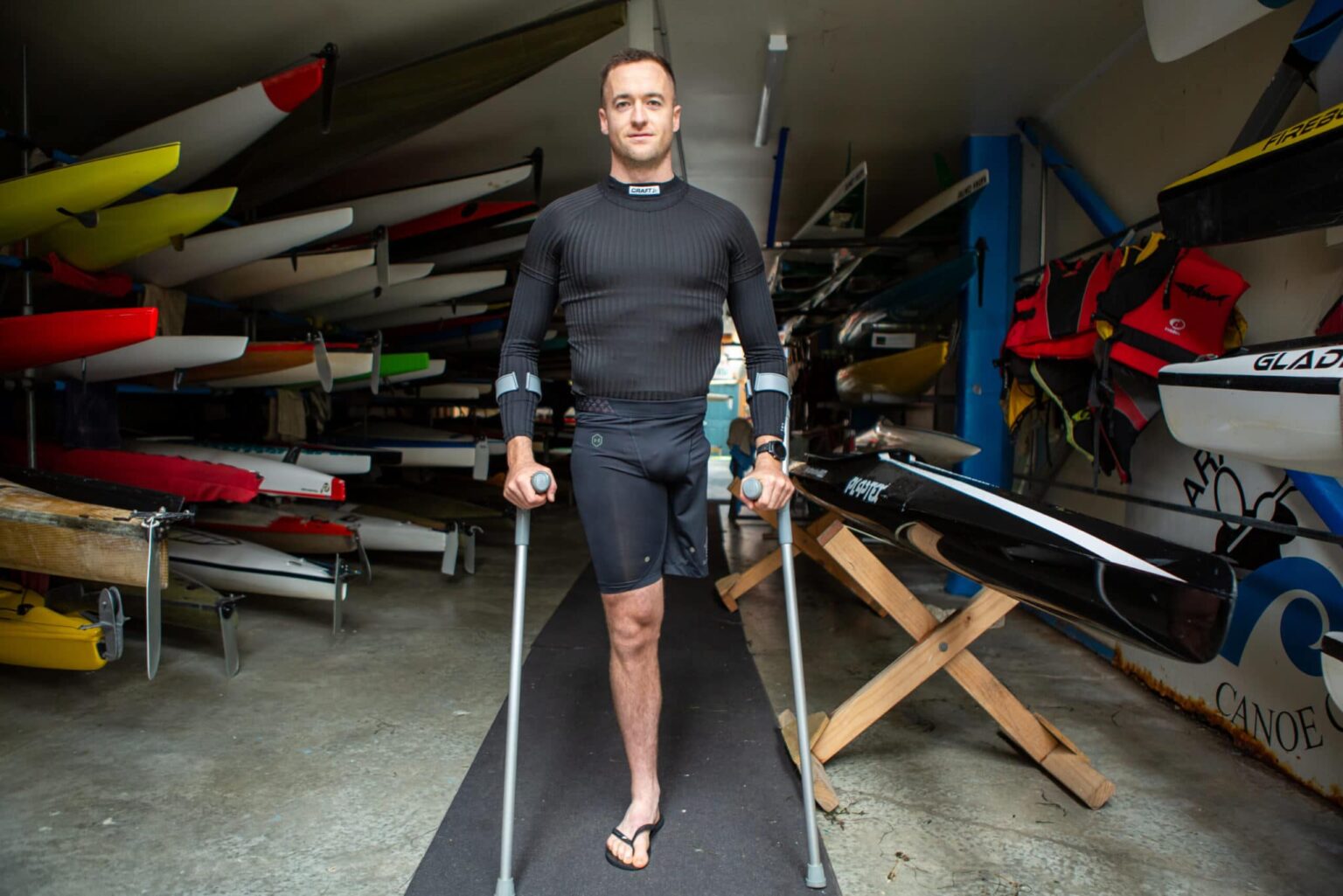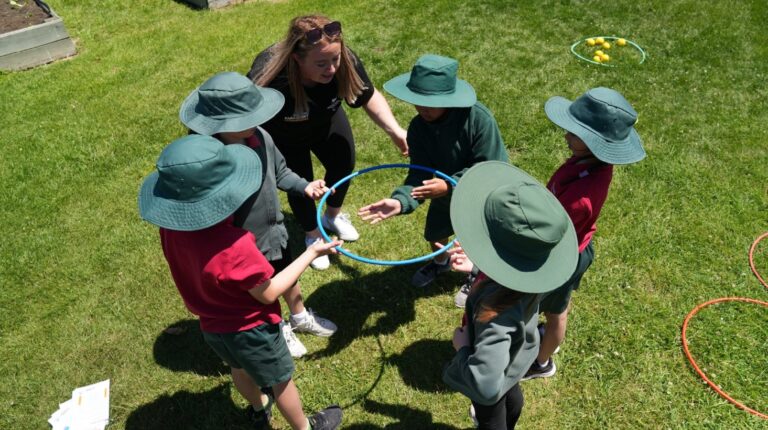In March of 2010, Scott Martlew was a top surf canoe paddler whose team had just won gold and silver medals at the nationals. In May of that year, he was injured in a rugby game, developed a devastating infection and, in a shocking twist of fate, lost his leg.
Doctors told him it would be “a long time” before he was back on the water, but just 10 months later, Scott, now 27, joined his team at the surf life-saving nationals, where they again won gold and silver medals.
“There were tears on the beach,” Scott says, remembering that milestone. “I just love the beach, it’s a huge part of my journey. Being a member of the South Brighton Surf Life Saving Club has given me a lot of good times.”
Growing up with two brothers in Christchurch, Scott was always a competitive, active kid. Water sports were his true love, but he played rugby at a high level too. It was while playing for his high school’s first XV, in a curtain raiser for a Crusaders vs Brumbies Super Rugby match, that he took a hit to the leg while in a ruck.
It hurt — a lot — but in the excitement of the occasion, and bearing in mind all the people there to support him, Scott managed to play on, ignoring the pain. It was a few days before he realised something was seriously wrong.
A scan showed he had fluid surrounding a 10-centimetre tear in his thigh muscle, and he was given crutches and sent home – but the pain and swelling worsened and he was soon back in hospital. Precious days passed before the cause was discovered: he had necrotising fasciitis, commonly known as flesh-eating disease.
Emergency surgery was required to save Scott’s life, but it meant removing his leg and part of his buttock. He was in a coma in intensive care for a month and spent another month in hospital recovering, followed by six months’ rehabilitation at home.
Friends and family kept him buoyed up in hospital and he managed to avoid falling into a pit of despair, feeling resentful about what had happened. His best mate and teammate Nick Sullivan presented him with a surf canoe paddle, providing inspiration for Scott’s incredible comeback, and his future as a Paralympian. Scott competed at the Rio Paralympics in 2016 and heads to Tokyo next year, where he is a medal favourite in the 200-metre sprint.
Coach Leigh Barker has known Scott for 10 years and says he has always pushed himself to the limit.
“Kayaking is leg-driven. All your power comes from your feet and it causes you to twist. So if you’ve got one leg, you’ve got 50 percent power, 50 per cent balance. He managed to balance with one leg and basically taught himself how to paddle again. He’s got a super shoulder that acts as his leg, as his balance, as his everything.”
Leigh watched Scott swallow handfuls of pain pills while recovering from his illness, then get out on the water and push through his physical and mental limits. “He’s quite a tough wee cookie, he’s very resilient,” says Leigh. “He just keeps on coming back for more and more. It’s quite interesting watching him turning himself inside out. He puts himself in a place he doesn’t want to be in, a place most normal humans won’t go.
As single-minded as he can be, Scott, who recently moved into his own home with partner Sophie, tries to make the most of the supplemental opportunities para-kayaking gives him.
“You get to see all these amazing places — places that you wouldn’t necessarily go on holiday,” he says of his envy-inducing itinerary. “You get to see a lot of other cultures around the world and meet lots of new people, and your competitors turn out to be like mates.
“It’s opened up a whole different world to what the everyday person has back in New Zealand.”
Story created by Tower Insurance.
Find out the other Extraordinary person stories on Corrie Robinson, Cody Everson, Emma Foy and Neelam O’Neill.



























